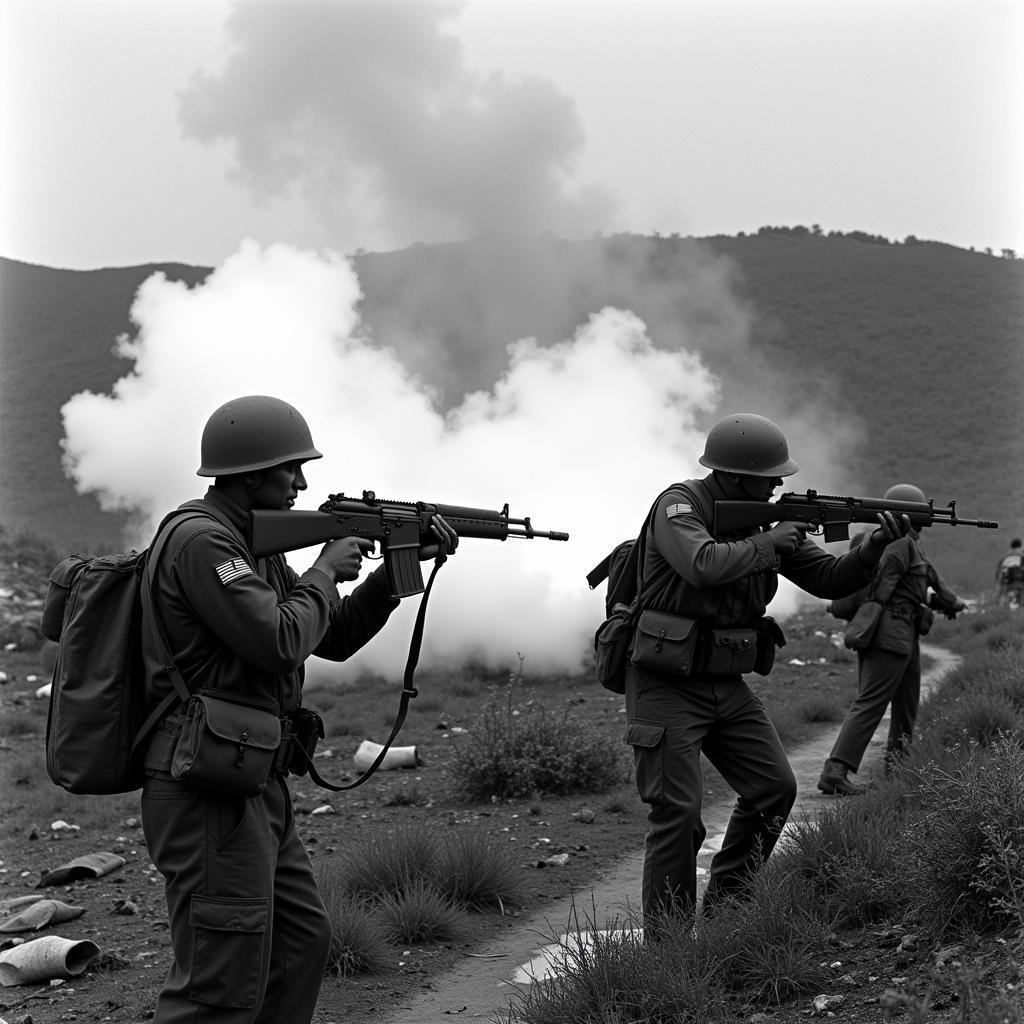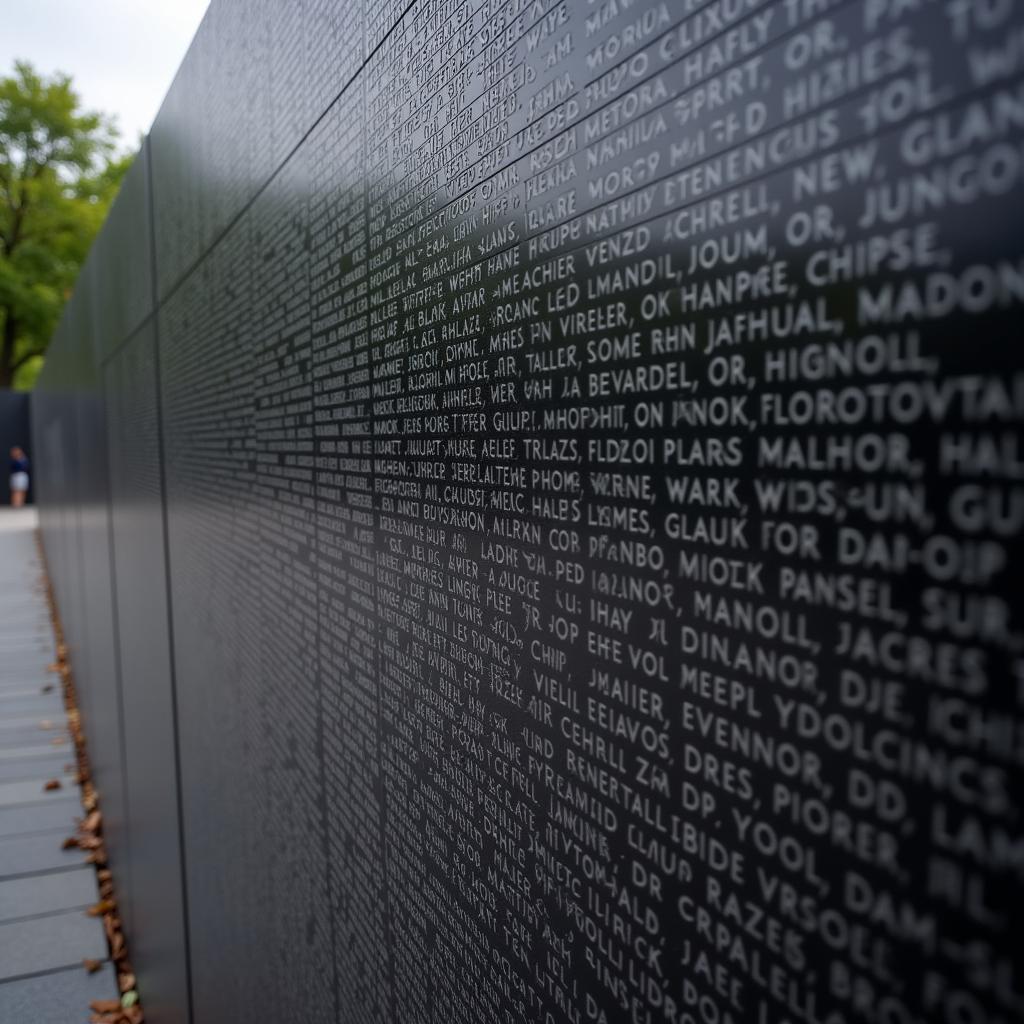The North Vietnam Vs South Vietnam War, more commonly known as the Vietnam War, was a pivotal conflict of the 20th century. This article offers a comprehensive look at the war’s origins, key events, and lasting impact.
The Seeds of Conflict: A Divided Nation
The roots of the war can be traced back to the aftermath of World War II, when Vietnam, previously under French colonial rule, experienced a power vacuum. Ho Chi Minh’s communist Viet Minh, victorious against the Japanese, sought independence for a unified Vietnam. However, Cold War tensions led to the Geneva Accords (1954), dividing the nation into communist North Vietnam and US-backed South Vietnam.
Escalation and Intervention: The US Enters the Fray
The division proved temporary as communist insurgency, supported by the North, grew in the South. The US, fearing the domino theory – the idea that communism would spread throughout Southeast Asia – gradually escalated its involvement. From military advisors, the US transitioned to direct combat, sending troops to support South Vietnam.
 Vietnam War: US soldiers in a firefight
Vietnam War: US soldiers in a firefight
The Tet Offensive: A Turning Point
Despite US military superiority, the conflict dragged on. In 1968, the North Vietnamese Army and Viet Cong launched the Tet Offensive, a coordinated series of attacks throughout South Vietnam. Although militarily defeated, the offensive shocked the American public and eroded support for the war.
The War’s End and Legacy
Facing mounting casualties and dwindling public support, the US began withdrawing troops in the early 1970s. The Paris Peace Accords (1973) officially ended US involvement, but fighting continued between North and South Vietnam. In 1975, Saigon, the capital of South Vietnam, fell to the North, marking the end of the war and the reunification of Vietnam under communist rule.
 War Remnants: A destroyed tank in a field
War Remnants: A destroyed tank in a field
The Human Cost and Political Ramifications
The Vietnam War had devastating consequences for all involved. Millions of Vietnamese civilians and soldiers, along with tens of thousands of US and allied troops, lost their lives. The war left physical and emotional scars, and its legacy continues to shape Vietnamese society and US foreign policy.
Conclusion: Lessons from a Divided Nation
The North Vietnam vs South Vietnam War serves as a stark reminder of the human cost of conflict and the complexities of Cold War geopolitics. Understanding its history is crucial to comprehending the challenges faced by Vietnam today and the ongoing debate about US interventionism.
FAQs
- What were the main causes of the Vietnam War? The war stemmed from a complex interplay of factors, including Vietnamese nationalism, Cold War tensions, and the legacy of French colonialism.
- Why did the US get involved in the Vietnam War? The US intervened primarily to contain the spread of communism in Southeast Asia, driven by the domino theory.
- What was the significance of the Tet Offensive? The Tet Offensive, while a military defeat for the North, was a turning point as it eroded US public support for the war.
 Vietnam War Memorial: Names etched in stone
Vietnam War Memorial: Names etched in stone
Need More Information?
For any assistance or information, please don’t hesitate to contact us:
Phone: 02838172459
Email: [email protected]
Address: 596 Đ. Hậu Giang, P.12, Quận 6, Hồ Chí Minh 70000, Việt Nam.
We have a dedicated customer support team available 24/7 to assist you.